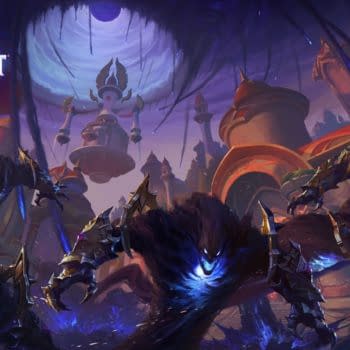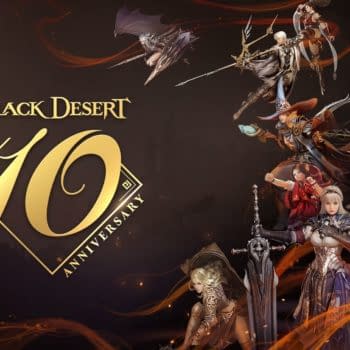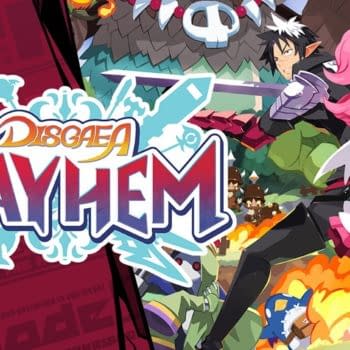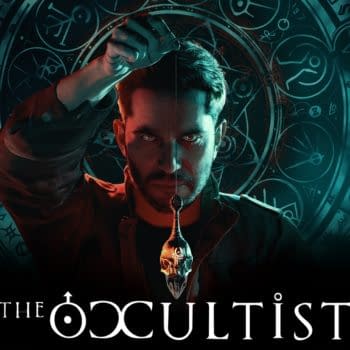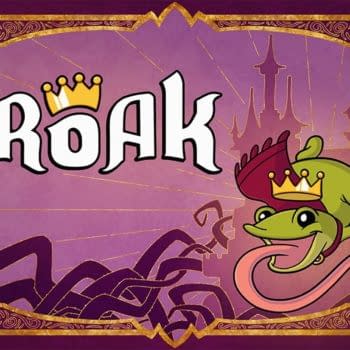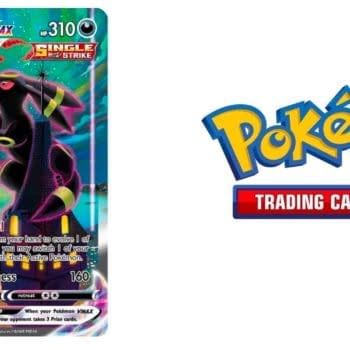Posted in: Games, Video Games, YouTube | Tagged: #YouTubeAgeGate, #YTAG, age gate, age restriction, Channel Awesome, Keemstar, Leafy, Nostalgia Critic, youtube, YouTube Age Gate
The Crisis That Is #YouTubeAgeGate & How Silence Says Everything
Ever since PAX East ended, Twitter has blown up with the hashtag #YouTubeAgeGate. You may not be entirely aware of what it is, but in a few short days, it has become one of the most talked about issues that looks to be the next step for YouTube regulating content. It has implications of doing good things, but it's also scaring a lot of content creators and making them wonder what the days ahead will look like for people who make their livelihood off YouTube. To start all this off and get some perspective, we have to start with Keemstar. I know, he's not everyone's favorite source as his content is usually more gossip, but this is one of the rare instances where he's done some investigating and worked with the community to dig up some facts.
The video above is Part 2 of Keemstar's look into the initial rumor. According to him, a YouTube creator (who is remaining anonymous) told Keem about an after party at PAX East where they were getting drunk with a YouTube employee and complaining about the glitch in their system that's causing them to lose subscribers. To which the employee shared that the glitch wasn't a glitch, it was "a program that YouTube has been testing out." That nameless program is a system where they rank different channels on YouTube based on the content provided, and they Age Gate the entire channel. Right now, YouTube uses Age Gating on select videos to prevent people under age from viewing certain content. If you're under 12 or under 18, you're restricted from seeing content that either the channel or YouTube had rated inappropriate for that age. Most of it is by choice, but some of it is by force. One of the latest examples of that would be a video Seananners posted for the game Conan: Exiles, which YouTube forced an age gate on despite Nanners going through and blurring out all the genitalia. To which Nanners told his Twitch stream he decided not to do any more videos for that game afterward because it was forced on him despite meeting their criteria.
What this program is apparently doing is looking at the content your channel makes and putting an age restriction on the channel as a whole. It would be as if the FCC came in and put a TVMA rating on Comedy Central, and you'd need to be of a certain age to access the network. The program uses the birthday on your GMail account (which you have to have linked to YouTube in order to subscribe to channels and view certain content to begin with) to determine your age, and if you're under a certain age, you can't watch videos, subscribe, or even search for the content itself from a specific channel. So let's say tomorrow a channel like Buzzfeed or Markiplier were rated in the mature level, a person under the age of 18 could not find any of their content. According to Keem's video, the company as been working with it for months and is already testing the program out on channels like Leafy, who has constantly been losing subscribers for months–most likely due to his volatile commentary videos laced with video game content, while others in his same "genre" are thriving. YouTube appears to be unsubscribing people from his channel who are under 18.
#youtubeagegate RT if you agree kids shouldn't see such filth pic.twitter.com/EDLnf4UN4N
— UberDanger (@UberDanger) March 15, 2017
Ever since Keem reached out to the community with this, dozens of YouTube channels have been reporting the same issues using the hashtags #YouTubeAgeGate and #YTAG, including logging in with accounts where they changed their birthdate to look up their own content and couldn't find it. Which as you can see above has affected minor channels like UberDanger to well-known channels like Channel Awesome (who produce the Nostalgia Critic). Some of the restrictions just seem unneccessary, as people have pointed out problems like Netflix reviews being taken out due to the program.
The obvious concern is that YouTube only pays out based off a couple of key items: Interaction (likes, comments, subscriptions) and Views. By rating a channel a certain age and unsubscribing people from that channel, you are effectively killing off that person's share of an audience they earned and ultimately taking away from their income. Imagine working 40 hours a week at your job, then one day finding out you're now only working 28 hours because the company decided to try a new policy without telling you. You'd be angry as hell over the loss of income, too. Especially when the 12-17 demo is one of the most sought after on YouTube. Unlike people over the age of 18, that group is the most likely to rewatch a video multiple times. At school, during lunch, with a group of friends, at home in their spare time, all from different wifi/internet connections that register as new views. That single 12-17-year-old turns into 4-7 views per video a week, and that's interaction you can't ignore.
The part of this that isn't being explored by anyone is the possible benefit to the situation. Let's say you're a beer company like Heineken, and you want to run ads on popular channels like The Game Grumps or Angry Video Game Nerd, in an attempt to reach their adult audience. By the TOS definition, you're not allowed to because very few of the videos on that particular channel are appropriate for you to run a beer ad through due to no age restrictions. If a channel were made Mature, then mature advertisers would be more inclined to spend money on ads going to select channels. If those content providers wanted that kind of ad running on their page, which is an option for them. Companies with that kind of ad usually pay more money to have it seen, which means more income for YouTube and the channel itself. The real question that comes up to that decision making is whether or not having beer and gambling ads on your videos offsets the loss of audience you just took. Then there's the argument of parental supervision getting an aiding hand in helping keep underaged kids away from inappropriate content, simply by using their birthday as a resource. It's a double-edged sword that has potential benefits, but it's clear most people online feel the bad massively outweighs the good.
We reached out to YouTube this morning for a comment on the situation but received no response before running this story. If this new rating system is taking effect right now, it's only a matter of time before YouTube is forced to come out and speak about it. Though honestly, it wouldn't be the first time the company made an executive decision that changed the way people viewed content and received income, without telling anyone about what happened until it was too late. Sometimes by posting a policy change and addressing no concerns. Far too often do we see videos from popular YouTube stars voice concerns over changes such as fair use policy, design makeups, content policy, etc. Especially with a company that numerous people have cited that there is no contact source for them to reach out to for concerns beyond technical issues, unless you're one of the lucky few who are above the five million subscriber count.
What are your thoughts on #YouTubeAgeGate? Is it an attack on the system and a blow to the streamers? Or is it a necessary progression of the website as it continues to grow? Tell us what you think and we'll keep an eye on the story as things develop.





